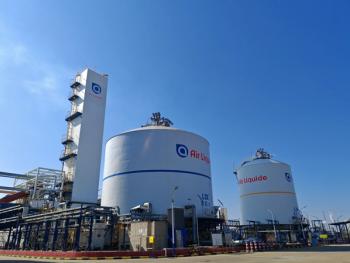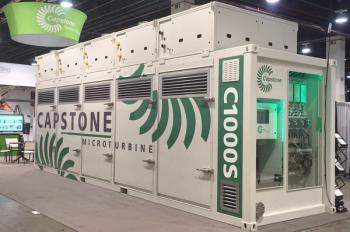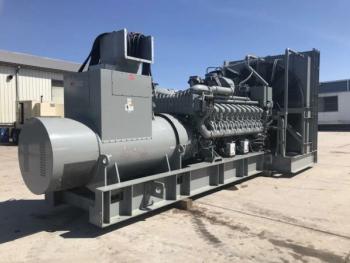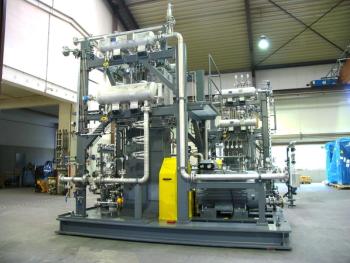
Three questions to ask your equipment consultant or broker
Your car is six years old and you have decided to buy a new one. How will you go about
making
the purchase? Should you consider only brand new cars from a dealer’s showroom or should you look at used cars as well? Will you do research on-line ? Will you purchase on-line? Will you engage an expert to help with the car selection, inspection and the purchase negotiation? Do you want a maintenance agreement?
Indeed, the way we buy things has changed dramatically during the last 20 years. Many people shop for everything on-line in search of a bargain. Power plant equipment is no exception. Sometimes, you can find unused equipment in a warehouse for sale at a steep discount to the OEM list price. Cynics will say “You get what you pay for” but experienced pros also know that “You get what you negotiate”. Today, companies that own and operate turbomachinery rarely employ full-time equipment experts. The need to purchase might occur only once a year or every few years. It’s more economical to keep a consultant on retainer to work hand-in-hand with your supply chain (purchasing) manager when the need arises.
Finding the right equipment consultant or broker is much like finding a good doctor or financial consultant. You can search on-line but it’s better to start with a recommendation from a trusted friend than to sort through websites. Interview the consultant first by telephone and then in person… like a job interview. Is this consultant an expert, trustworthy and qualified? Here are three questions to ask:
1. What are your credentials and experience?
This is a two-fold question. Does the consultant have technical prowess and knowledge about the different makes and models of equipment that you need to buy? Does the consultant have enough experience to know the usual and customary commercial terms to negotiate effectively on your behalf? For example, how valuable is a warranty, can it be extended, and what are the exclusions.
Ask for the consultant’s employment history. Contact the previous supervisor to determine if the consultant was let go, resigned or retired. Ask for references from at least three clients that have recently utilized the services of the consultant. When you find a consultant that you trust, sign a retainer agreement. The agreement might include a monthly or annual fee but this can be a modest amount. Most important, get a written agreement in place. When you need help on an emergency basis (a turbine wreck), no time will be lost searching for a qualified consultant, negotiating a consulting services agreement and waiting for approval from your legal department.
2. Are you authorized?
Perhaps you received an e-mail from a consultant or broker offering some equipment for sale. It might be a used steam turbine generator installed at a power plant that has been shut down. Or maybe you are offered an unused gas turbine generator stored in its original packing crates as a result of a project cancellation.
Whatever the circumstances, ask if the broker has written authorization from the owner to offer the equipment for sale. If the answer is “Yes,” ask for a verification e-mail from the owner. Just because equipment is posted on a broker’s website does not mean that the owner has authorized the broker to offer it to prospective buyers. Be sure to ask. It is not easy to distinguish between honest and scam websites.
3. How will the consultant or broker be compensated?
A buyer seeking advice and help should expect to pay the consultant and be the only party paying the consultant. Buyers can pay for “sourcing assistance” on an hourly basis, a fixed amount or an agreed upon formula relating to a price target.
A broker or consultant seeking compensation from both the buyer and the seller in the same transaction is conflicted. If a broker identifies any equipment for your evaluation, ask the broker, “Will the seller be paying you a commission if I buy this?” If the broker honestly tells you “Yes,” do not be offended.
Just be aware that the broker is acting on behalf of the seller and cannot be expected to concurrently help you achieve the lowest price or the best terms. A purchase recommendation under these circumstances may still be a great value for the buyer but the broker or consultant should point out the bias.
The same three questions apply if you are engaging a consultant to help you sell some turbomachinery or related equipment. You want your consultant to be an expert who is well qualified; do your homework. Your consultant or broker will want a written agreement to sell your equipment. Don’t be offended. This is best for all parties. Prospective buyers will want to know that you have authorized the broker to offer your equipment.
When you engage a consultant to sell your equipment, be sure that the services agreement does not create a conflict. Your broker should not already be engaged to sell a 2015 unused Ford Mustang for another party if you need to sell a 2015 unused Ford Mustang. If you agree to pay a sales commission to the broker, the broker should be prohibited from receiving a commission from the purchaser (a “buyer’s premium”).
Transactions for power plant equipment or long-term service agreements often exceed $10 million. Consultants and brokers can provide great insight and value to your in-house team. Ask the right questions and do your homework to find the right consultant.
(The author is president, Axford Consulting)
Newsletter
Power your knowledge with the latest in turbine technology, engineering advances, and energy solutions—subscribe to Turbomachinery International today.





